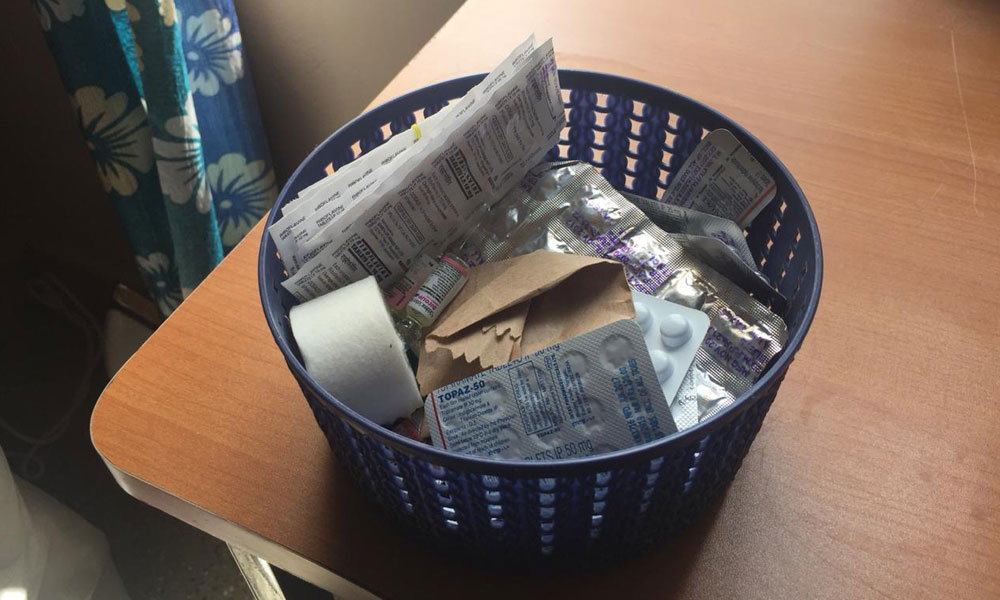Bio-Medical Waste is a Hazard
The state of Karnataka is seeing growth in the healthcare facilities. So is the bio-medical waste. The Karnataka State Pollution Control Board (KSPCB) report states that there are 27,746 numbers of Health Care Centers in Karnataka and 52 tonnes of bio-medical waste is produced in Karnataka every day.
According to the Environment Management and Policy Research Institute’s (EMPRI) report India in a day generates one-two kilos of biomedical waste per bed in a hospital, and 600g per bed in a clinic.
The report shows that dumping of bio-medical waste with other waste leads to land pollution. Bio-medical waste as defined by Bio-Medical Waste Management Rules of 2016 is “Any waste, which is generated during the diagnosis, treatment or immunization of human beings or animals or research activities, pertaining there to or in the production or testing of biological or in health camps.” Examples of bio-medical waste are laboratory waste, used dressing cotton, X-ray films, expired drugs, etc…
The Central Pollution Control board states that only 15 percent of the bio-medical waste is hazardous, but when they come in contact with other waste materials they make others hazardous as well. This happens due to improper disposal and lack of awareness, says the report.
The report also stated that In India in 2016 the number of health care facilities decreased compared to 2015, but the generation of bio-medical waste has increased. In 2015,it was 501tonnes per day, but in 2016 it was 517 tonnes per day. Karnataka generated 66,468 kg of waste per day and treated and disposed the same amount of waste.
Dr. Venkatraman Manian of Chettinad Hospital states that, “Improper dumping will lead to health hazards. It is biological waste like blood, body parts, syringes and needles contaminated. It can be pus and aspirations.
People getting exposed to such waste have the danger of getting diseases, which could be anything from skin infection or other major diseases. Great care should be taken while treating such waste.”
To manage pharmaceutical waste, Satva Health Solutions a company promoted and authorized by KSPCB provides various services. P. Radhika Mohan of Satva says that they collect expired drugs from Pharmacists for its safe disposal. “Approximately 10 tons of pharmaceutical waste is collected every month. We collect from over 5,000 pharmaceutical companies in Karnataka.
We believe with increasing demands, the pharmaceutical waste also increases.”





